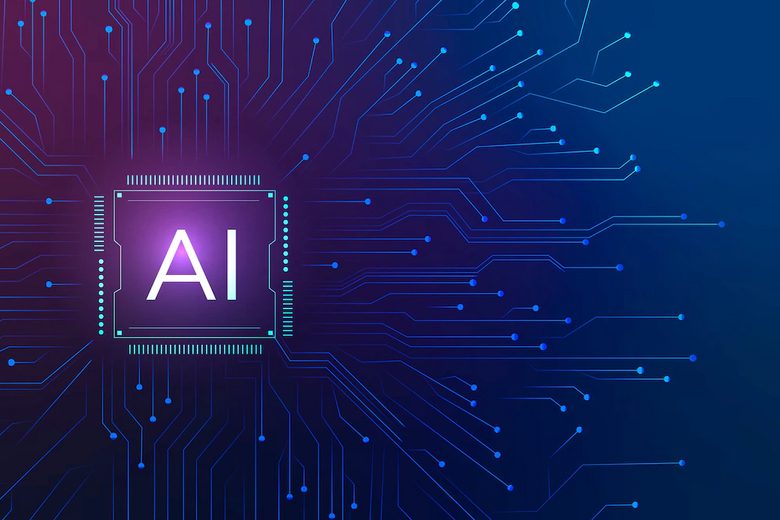The first two decades of the 21st century have been marked by exponential advances in technology that were once considered elements of a science fiction movie script. Technologies like Artificial intelligence (AI) and Cloud Computing—have stood the test of time and have become mainstream. In this article, we’ll look at what these technologies are and how their combination has been a landscape-changing force in the world of modern technology.

Table of Contents
Introduction to Artificial Intelligence
Simply put, artificial intelligence is the simulation of human intelligence by machines. The integration of artificial intelligence into business allows it to perceive and observe the environment and generate optimal results accordingly—very similar to how people operate, although much faster.
As it exists today, artificial intelligence has come a long way, and its applications in the modern world are countless and unlimited. A typical example is the smartphone assistants Siri, Alexa, and Google Assistant, which have now become an integral part of our lives. We talk to them, give them tasks, and ask them questions.
With advantages such as task automation, less human intervention, faster processing speed, and lower error rates, many industries and areas are increasingly using AI to take their working methods to the next level. To say that artificial intelligence is a revolutionary technology would be an understatement.
Getting To Know Cloud Computing
Cloud computing refers to the hosting of software services in the cloud. The term “cloud” is commonly associated with storage, and rightly so, the cloud was originally popularized as an alternative to storage for computing devices. Data can be stored on servers and accessed by networks as needed.
It has now become possible to use cloud servers not only for storing data but also for data processing and calculations. In 1999, Salesforce began offering software services using cloud servers, signaling the emergence of the SAAS (software-as-a-service) model. Users can now request software services without actually installing the app on their devices. All one needs is an internet connection.
Today, cloud computing is a mainstream technology, and many industries and areas are using it for benefits such as data security, 24/7 access, nearly infinite storage capacity, and low maintenance costs, among many other benefits.
Adding an AI Layer to Cloud Computing
Without a doubt, artificial intelligence is a groundbreaking technology that has Midas traits when it comes to scaling functionality.
Cloud computing allows users to efficiently store and manage their data while providing additional benefits such as data security, encryption, regular backups, application hosting in the cloud, and more.
The idea behind combining AI and cloud computing is to provide a degree of intelligence for the current services provided by cloud computing—a level of intelligence that makes this combination of AI and cloud computing groundbreaking.
Benefits of Integrating AI into Cloud Computing
The goal of combining AI platforms and cloud computing is to create a tool or set of tools that can tap into cloud computing’s existing potential while adding some extra firepower to its already powerful arsenal of features. Here’s how artificial intelligence improves cloud computing:
1. Improved Data Management
Our world is data-driven, and given the sheer size of the user base, cloud computing routinely handles unimaginable amounts of data. Every second, businesses, organizations, and individual around the world are uploading, downloading, collecting, creating, and destroying a lot of data.
Managing such huge data warehouses and the entire cloud storage infrastructure is, by no means, an easy task. Consequently, cloud service providers are using artificial intelligence to reduce their workload. Embedding artificial intelligence in the cloud infrastructure helps improve data management by automating redundant tasks, identifying, sorting, and indexing different types of data, managing data transactions in the cloud, identifying any failures in the cloud infrastructure, and ultimately streamlining the entire data management process.
2. AI-Ready SaaS Applications
With the advent of the SaaS model, it became possible to host not only data but also complex software applications and even entire virtual computers in the cloud. To further enhance the cloud computing experience, SaaS application developers have begun to integrate AI with their applications, resulting in powerful SaaS software applications that are AI-enhanced and ready to offer more functionality to end users.
A popular example is Salesforce Einstein, a Salesforce smart solution for businesses that leverages the power of artificial intelligence for predictive analytics, deeper data analytics, comprehensive user behavior reports, and more, thereby providing data that businesses can use to formulate their sales strategies and increase profit.
3. Increased Data Security
For businesses, data is the lifeblood of their existence, and since cloud computing is synonymous with processing vast amounts of data, it is essential to keep that data secure. Various network security tools are available today that use the power of artificial intelligence to implement security protocols in the cloud infrastructure, in order to limit any potential data leaks, eliminate any security loopholes, and prevent data theft and unwanted loss or damage of stored data.
4. Reduce Errors and Costs
One of the main reasons for integrating AI into cloud computing is the superior task automation it provides. Automation of tasks means less human intervention, the result of which is fewer errors. It also leads to a direct increase in decision-making time and a reduction in the number of people employed to perform previously manual tasks.
What’s in Store for the Future?
Undoubtedly, cloud computing and artificial intelligence are the technologies of the future. With cloud computing already on its way to becoming the de facto computing model of the times to come, and AI changing the technological landscape every day, it’s exciting to see what revolutionary technological advances the fusion of these two powerful technologies will bring to our lives.











Leave a Reply